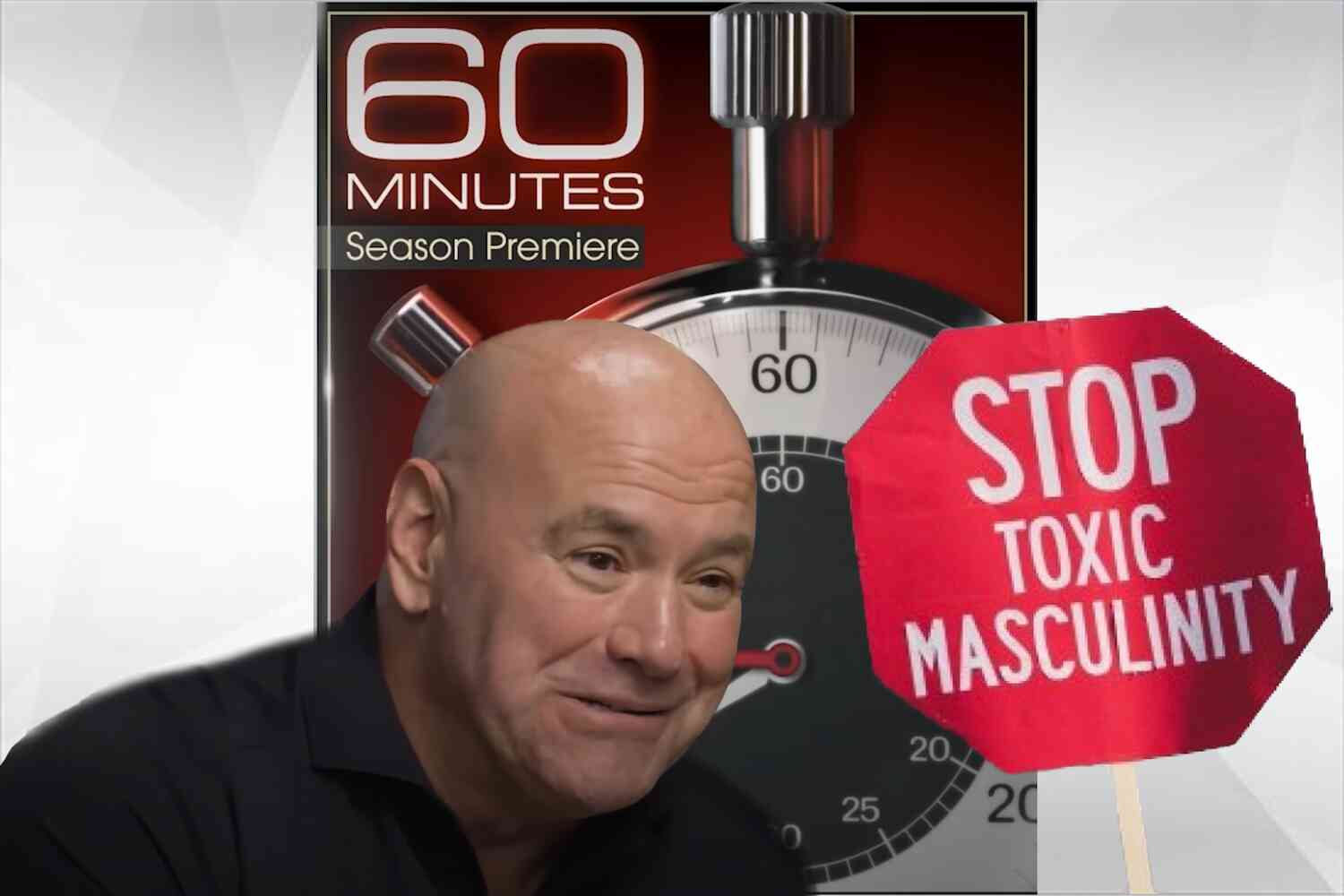Progressivism thrives on buzzwords. And the unlikeliest of people just demonstrated the quickest way to deflate them.
UFC president Dana White left 60 Minutes correspondent Jon Wertheim stymied after the latter pressed the former on the progressive buzzword "toxic masculinity."
Wertheim dropped the line like it was supposed to land as a knockout blow: "When you hear toxic masculinity?" White didn't take the bait. He didn't launch into a tirade about cancel culture or the state of the American male. He just smiled and asked, "What's that mean?"
Silence. Wertheim had no answer. Only deflection.
In that awkward pause, White exposed the whole charade. "Toxic masculinity" is not an argument. It's not even a coherent idea. It's merely a label designed to shut people up and embarrass them. But by simply refusing to play along, White reminded millions of viewers that the emperor has no clothes.
And that's the larger point: so much of modern progressivism isn't about substance, it's about signaling. It's about creating the illusion of moral clarity without the hard work of defining terms.
You see this everywhere:
When left-wing activists insist we "stand on the right side of history," no one ever explains what that history is or who gets to write it.
When politicians declare that "love is love," they never answer the question: "what is love - if personal definitions of love are the only standard, why are any boundaries necessary at all?"
When in 2020 the phrase "Defund the police" swept social media, city councils, and corporate statements, its meaning was never specified. Some said it meant abolishing police entirely. Others said it meant shifting funds to social programs. Still others meant it as symbolic protest. The slogan was powerful precisely because it was undefined.
The same can be said for progressive appeals to "democracy," to "dismantle the patriarchy," and more.
The power of these slogans lies in their vagueness. They sound compassionate, enlightened, and undeniable. But the moment you press for definition, the spell breaks.
That's why Dana White's answer matters. The man is far from a philosopher. He's a fight promoter. But his instinct here was brilliant. He didn't accept the question's assumptions, and instead forced the conversation back to reality: What does that mean?
That's a lesson for all of us. Christians, conservatives, or anyone tired of buzzword politics need not get flustered when accused with weaponized labels. We can calmly ask:
What does that word mean?
How do you define it?
Can you give an example?
What we will find is that more often than not, the answer will be silence. Because the power of the accusation was never in its substance but in its emotional punch. That's why Dana White's move here was better than anything you'll see from a UFC fighter. It's something every commonsense American should remember when encountering progressivism: if the house is made of mist, one question will blow it away.
P.S. Now check out our latest video 👇
Disclaimer: The opinions expressed in this article are those of the author and do not necessarily reflect the opinions of Not the Bee or any of its affiliates.









